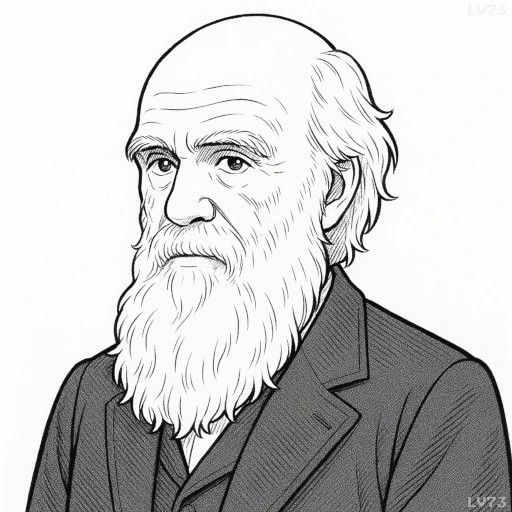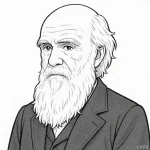“The mystery of the beginning of all things is insoluble by us; and I for one must be content to remain an agnostic.”

- February 12, 1809 – April 19, 1882
- Born in England (UK)
- Naturalist, geologist, biologist
table of contents
Quote
“The mystery of the beginning of all things is insoluble by us; and I for one must be content to remain an agnostic.”
Explanation
In this quote, Charles Darwin expresses his acceptance of the limits of human knowledge when it comes to understanding the origin of everything. He acknowledges that the question of how the universe, life, and everything in it began is beyond the capacity of human understanding, and he identifies as an agnostic, someone who neither confirms nor denies the existence of a divine being or force responsible for the creation of the universe. Darwin’s stance reflects his scientific approach, where he sought evidence for natural processes like evolution but recognized the inability of science to answer all philosophical or metaphysical questions, particularly regarding the ultimate origins of life and the universe.
Historically, Darwin’s agnosticism arose in part due to his personal reflections on the conflict between science and religion. Although Darwin had initially been a devout Christian, his studies on evolution and the natural world led him to question traditional religious explanations of the origin of species and the role of a creator. His agnosticism, therefore, was not a rejection of all religious belief, but rather a recognition that there are aspects of existence—like the ultimate cause of the universe—that may never be fully understood through human inquiry. This reflects a humble acknowledgment of the limitations of science in addressing questions of ultimate purpose and origin.
In modern times, Darwin’s agnosticism remains relevant as it mirrors a broader intellectual honesty seen in science today. While scientific progress has provided deep insights into the workings of the universe and life itself, questions about the origin of the universe, the nature of consciousness, or the existence of a higher power remain subjects of philosophical and theological debate. Darwin’s quote encourages a mindset of humility in the face of unknowns, advocating for a balance between scientific inquiry and a recognition that not all questions can be answered by human knowledge. His agnosticism invites us to embrace curiosity and exploration, while acknowledging that some mysteries may forever elude our understanding.
Would you like to share your impressions or related stories about this quote in the comments section?

